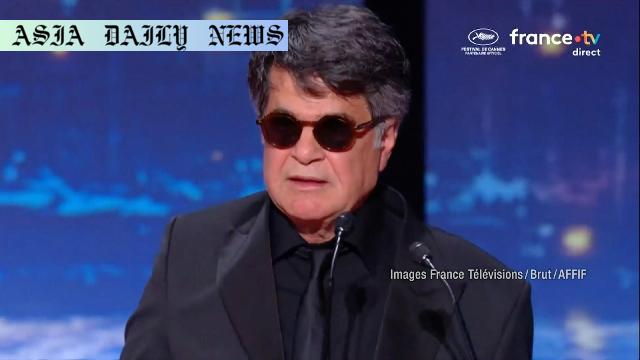Cannes – Iranian director Jafar Panahi’s ‘It Was Just an Accident’ wins Palme d’Or at the 78th Cannes Film Festival.
Jafar Panahi’s film wins the prestigious Palme d’Or at Cannes.
The Iranian director is celebrated for addressing social and political issues.
The audience gave him a standing ovation during the award ceremony.
Panahi emphasized the importance of freedom with his acceptance speech.

Introduction to Cannes and Its Prestige
The Cannes Film Festival is regarded as one of the most significant events in global cinema, alongside the Venice and Berlin film festivals. Each year, filmmakers and enthusiasts converge at this French Riviera locale to celebrate the finest in international cinema. Among the numerous awards presented, the Palme d’Or is the festival’s top honor, lauded as a symbol of unparalleled artistic achievement and impact in filmmaking.
The announcement of such a prestigious award invariably generates global attention, and this year’s 78th Cannes Film Festival was no exception. The coveted Palme d’Or was won by Iranian director Jafar Panahi for his latest work, “It Was Just an Accident,” a profound piece that resonated with both the audience and critics alike, earning a standing ovation during the ceremony.
Jafar Panahi’s Contribution to Cinema
Jafar Panahi, known for his bold and politically charged works, is no stranger to acclaim. His films often explore themes of human rights, societal oppression, and the struggle for freedom, which have frequently put him at odds with Iranian authorities. Despite multiple arrests and imposed restrictions, Panahi has continued to create compelling narratives that not only critique societal injustices but also inspire change.
“It Was Just an Accident” is emblematic of Panahi’s dedication to storytelling that challenges norms. With a focus on individual agency and societal dynamics, the film holds a mirror to the issues faced by millions. In his acceptance speech, Panahi highlighted the importance of freedom, asserting that no one should dictate personal choices, be it in attire or expression. Such a message underscores his unwavering commitment to advocating for human rights, both through his films and his words.
The Global Impact of the Palme d’Or Win
Winning the Palme d’Or is more than a personal achievement for Panahi; it is an acknowledgment of the universal themes his work addresses. At a time when freedom of expression and individual liberties are under threat in various parts of the world, such a win redirects global attention to these pressing issues. The standing ovation he received is a testament to the audience’s recognition of the courage and resolve it takes to create films that challenge the status quo.
The ripple effects of such recognition extend far beyond the festival itself. Panahi’s win symbolizes the triumph of art as a vessel for truth and change, appealing to audiences worldwide to reflect on the societal structures that govern their lives. Moreover, it underscores the importance of fostering platforms like Cannes, where diverse voices and stories can be celebrated on an international stage.
A Celebration for Global Cinema
The 78th Cannes Film Festival highlighted the power of cinema to connect cultures, provoke thoughts, and ignite change. While Jafar Panahi emerged as the star of the event, other nominated films like “Renoir” by Japanese director Hayakawa Chie also contributed to this rich tapestry of artistic expression. Although “Renoir” did not secure the Palme d’Or, its nomination underscores the diverse talents and stories celebrated at Cannes.
As one of the leading platforms for cinematic excellence, Cannes continues to be a beacon for innovation and artistry in the film industry. The festival serves not only as a venue for celebrating achievements but also as a reminder of the ongoing struggles faced by creators worldwide in their quest for self-expression and storytelling.
Conclusion: The Legacy of Jafar Panahi
Jafar Panahi’s Palme d’Or victory is a momentous occasion for the Cannes Film Festival, global cinema, and the principles of freedom and creativity. It reflects the resilience of artists who dare to challenge oppressive systems and advocate for change through their work. As audiences and film enthusiasts around the world celebrate Panahi’s triumph, his story serves as inspiration for future filmmakers and visionaries who seek to make a meaningful impact through the art of storytelling.
Commentary
The Significance of Jafar Panahi’s Achievement
Jafar Panahi’s win at the Cannes Film Festival is a milestone not only for the filmmaker himself but for the broader dialogue on artistic freedom. Panahi’s courage to persist in creating provocative and compelling narratives despite facing immense personal and professional risks underscores the power of art to transcend restrictions. His work reminds us that cinema is not just a medium of entertainment but also a potent tool for reflection and change.
Freedom of Expression Through Cinema
Panahi’s acceptance speech at Cannes was as impactful as his film. The emphasis he placed on freedom—whether in speech, attire, or thought—resonates universally. In a world where individual liberties are increasingly at risk, his words serve as a rallying cry for the importance of safeguarding human rights. By platforming his message at an event as globally recognized as Cannes, Panahi ensures his voice reaches an international audience, inspiring creators and activists alike.
The Broader Implications of the Palme d’Or
Winning the Palme d’Or is more than a personal accolade; it is an acknowledgment of the themes Panahi’s work represents. At a time when marginalized voices struggle to be heard, such recognition amplifies these stories, encouraging audiences worldwide to engage with critical issues. Panahi’s win is a victory for freedom, creativity, and the unwavering human spirit, standing as a testament to the transformative power of art.
As we celebrate this achievement, the hope is that stories like Panahi’s continue to inspire and challenge. The 78th Cannes Film Festival will undoubtedly be remembered for this symbolic moment, highlighting the intersection of art, activism, and a collective push for global equity and freedom.


